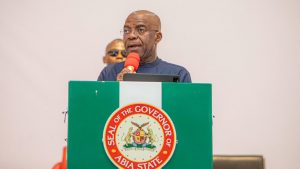Police brace for Catalan separatist protest during ‘clásico’


BARCELONA, Spain (AP) — Police in Spain’s restive northeast are preparing to ensure that next week’s “clásico” soccer match between Barcelona and Real Madrid won’t be adversely affected by a massive protest.
Catalan separatists are planning to gather in large numbers around the Camp Nou and possibly carry out actions inside Barcelona’s stadium on Wednesday when Madrid comes to play in one of the most watched matches of the season.
The heads of the regional police in Catalonia said Friday that there would be a combined 3,000 police officers and private security workers paid by the Barcelona club to guarantee that the game is played.
“It is a match that requires a special police detail,” regional interior chief Miquel Buch said. “The (Catalan regional police) will guarantee access to the match.”
Police chief Eduard Sallent said police will establish two perimeters. One will guarantee that the buses for Barcelona, Madrid and the referee crew arrive at the stadium. The second will work to allow the public to enter and to prevent potential confrontations between more radical separatists and those who support Spanish unity.
The on-line separatist platform Tsunami Democratic said this week that more than 18,000 people have signed up to join the protest and that buses have been organized to bring protesters to Barcelona from other towns in the surrounding Catalonia region.
Their goal is to use the worldwide television and media coverage of the game to echo their calls for secession from the rest of Spain and the release of nine high-profile separatists who were recently sentenced to prison terms for leading a failed breakaway attempt by Catalonia in 2017.
Tsunami Democratic said in a message posted on the Telegram messaging service recently that “many of these people, with tickets or season passes as club members, have received instructions to carry out the acts planned for the game.”
Sallent said that the police are not ruling out an attempt by separatists to interrupt the match.
“One of the situations could be a pitch invasion,” Sallent said. “We don’t think it is probable, but it is possible, and we have a detail designed for it. The club’s private security would be in charge of handling it, but the Catalan police will be there the help.”
Tsunami Democratic is a shadowy group whose leaders and operators are not publicly known, but leading separatist politicians, lawmakers, and activists have supported and promoted its use. It developed its own app for smart phones and also uses other messaging services to advocate for what it calls “peaceful civil disobedience.”
The platform sends messages to its followers telling them where to gather for protests and what to do.
Tsunami Democratic carried out its first major action in October when it organized a large protest following the guilty verdict for some of the movement’s leaders. A call by Tsunami Democratic led to thousands of angry protesters gathering at Barcelona’s airpor t. A massive street fight broke out between the most radical protesters and police both outside and inside the terminal, and about 150 flights were canceled as transport to and from the airport was stopped for hours. Protests by separatists continued each night for a week following the verdict, leaving more than 500 people injured, half of them police officers.
The “clásico” was originally scheduled to be played on Oct. 26, but fears of a protest at the time led the Spanish soccer federation to agree to the league’s request to postpone it.
The decision is now being criticized by some since the protesters appear to have gained time to organize themselves better.
“We are not concerned. We want to play the match with the maximum guarantees of security,” Madrid defender Dani Carvajal said. “We don’t know if it was an error to postpone it. It is easy to say so in retrospect.”
Camp Nou is Europe’s biggest stadium with capacity for 99,000 spectators and the “clásico” is its biggest game of the season. As of Friday, the only tickets not sold out were “VIP” seats that cost 1,250 euros ($1,390).
Separatist sentiment grew sharply in Catalonia during the global economic recession that hit Spain hard. The 7.5 million residents of Catalonia, which is one of Spain’s wealthiest regions, are now roughly equally split by the secession question, according to polls and election results.
Separatists have used the Camp Nou to make their voice heard for several years. They shout for “independence” at a set time during matches and sometimes unfurl banners.
Barcelona, as a club, has walked a fine line between both supporting the right to expression by its fans and aligning itself with the greater interests of Catalonia, while not supporting secession and trying not to anger its Catalan fans who are not separatists and its millions of supporters across Spain.
“We all share the responsibility to make sure the match is played,” Barcelona president Josep Barotmeu said Thursday.
“We know that Catalonia is going through a complicated moment, but (free expression) is compatible with sport,” he said. “We are telling our club members to bring their families, their friends. Between all of us we can make this ‘clásico’ a celebration of sport and civility.”






